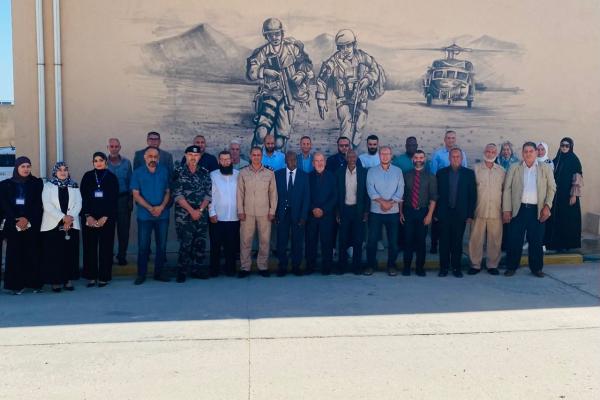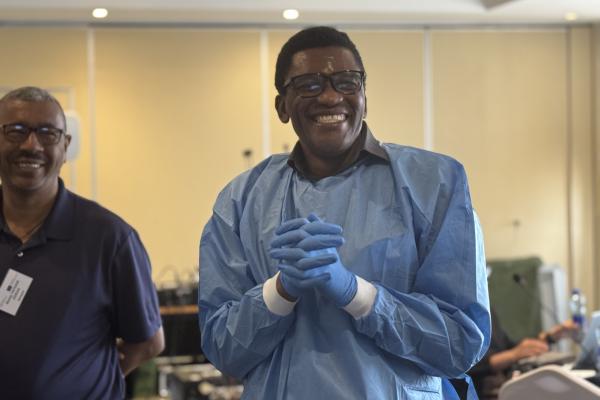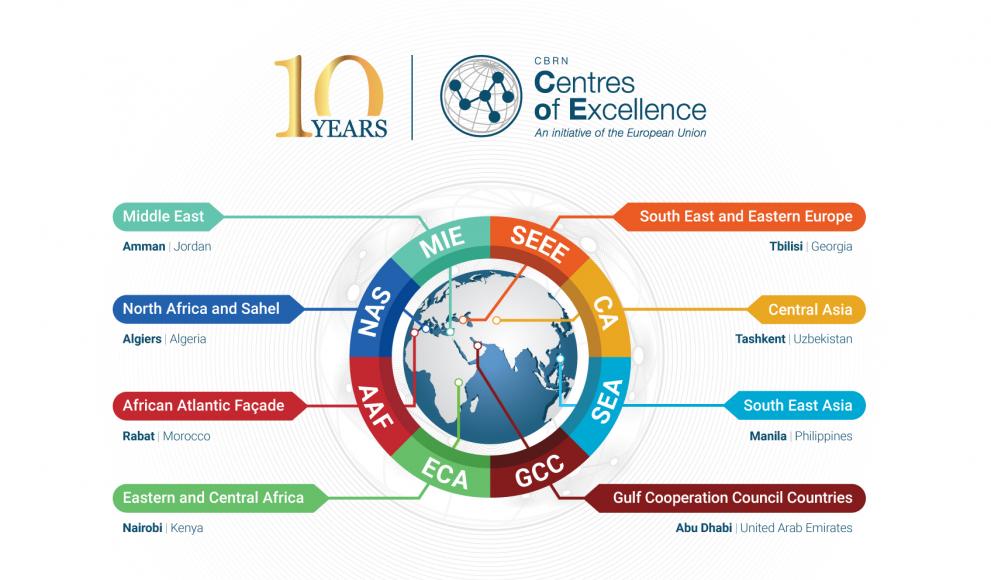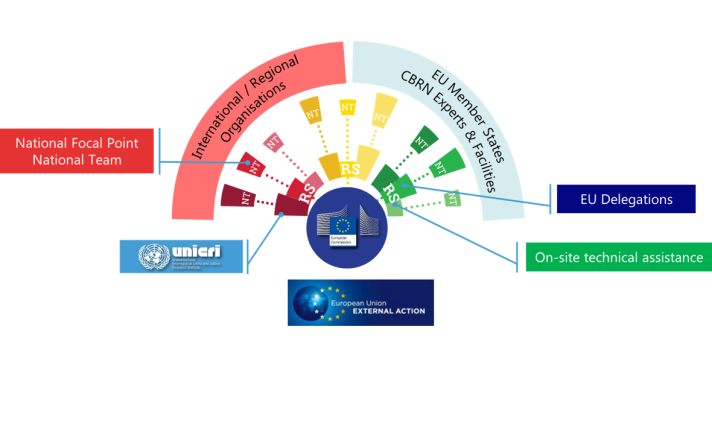
- CoE Region
- AAF - African Atlantic Façade
- CA - Central Asia
- ECA - Eastern and Central Africa
- GCC - Gulf Cooperation Council Countries
- MIE - Middle East
- NAS - North Africa and Sahel
- SEA - Southeast Asia
- SEEE - South East and Eastern Europe

- CoE Region
- SEEE - South East and Eastern Europe

- CoE Region
- NAS - North Africa and Sahel

- CoE Region
- ECA - Eastern and Central Africa
The CoE network brings together experts and professionals from 63 countries that cooperate at regional and international level to strengthen CBRN risk mitigation and to promote a global culture of safety and security. Since the initiative’s inception in 2010, each Partner Country have voluntarily joined the CoE network and contributed to it with their know-how, skills and unique experiences. This voluntary, country-driven approach is essential to ensure that all Partner Countries take ownership over the initiative’s impact within and beyond their borders.
The CoE network supports the mitigation of and preparedness against CBRN risks by fostering good governance in the domain, enhancing regional and international multi-agency cooperation, and facilitating the transfer of best practices, among others. The bottom-up and demand-oriented nature of the activities carried out within the network, ensure that the support provided is sustainably tailored to countries’ and regions’ needs. Together, the CoE network members advance towards the shared goal of making the world a safer place.
The CoE initiative provides a platform where countries can engage in a constructive dialogue and strengthen their cooperation to address similar challenges.
“This initiative to combat CBRN risks and threats has evolved into a truly global network of cooperation, as experience and good practices are shared within and between different regions, and successful actions are adapted and replicated in different places.”
Hartmut Bühl, Editor-in-Chief, and Nannette Cazaubon, Deputy Editor-in-Chief, of The European Security & Defence Union

How does the CoE network cooperate?
Each Partner Country appoints a National Focal Point who coordinates a CBRN National Team, tasked with the implementation of the Initiative at country level. National Focal Points are supported by a Regional Secretariat, which is hosted by one Partner Country in the region. Each Regional Secretariat is composed of a United Nations' Regional Coordinator as well as a regional On-Site Assistance expert. The Secretariat is responsible for ensuring cooperation and coordination between Partner Countries and relevant regional and international stakeholders in order to provide specific CBRN security governance support upon request.
With the support of the Initiative and the technical and scientific assistance of the EU’s Joint Research Centre, the National Focal Points and their National Team proceed with national needs and risk assessments that provide a comprehensive and consistent basis for establishing a CBRN National Action Plan. This enables Partner Countries to define their priority objectives in the field of CBRN Risk Mitigation, which can be shared to build joint projects and formulate an integrated regional approach.


